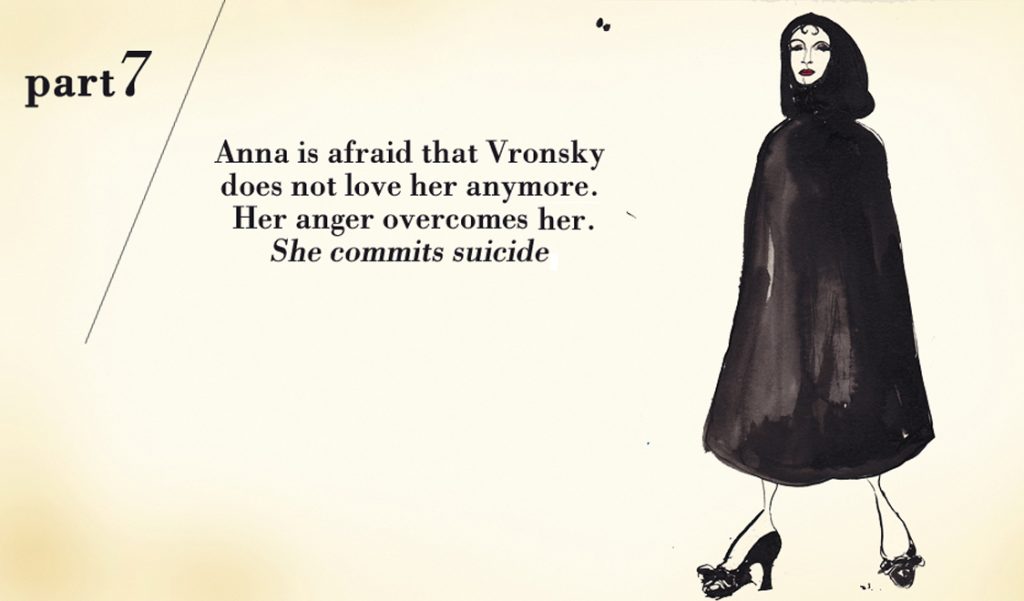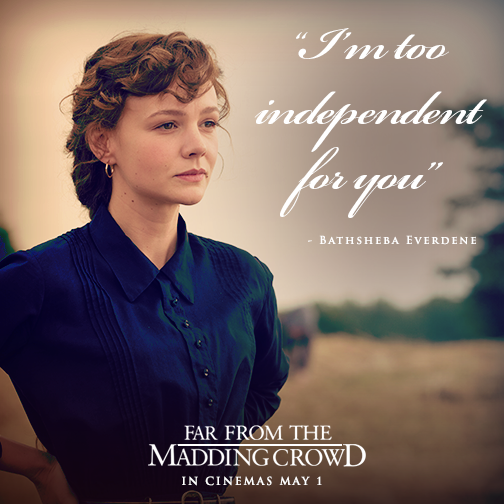Anna Karenina vs. Bathsheba Everdene
One of my new year’s resolutions for 2016 was to read more classics and so far I’m on schedule with ’Anna Karenina’ by Leo Tolstoy and ’Far From the Madding Crowd’ by Thomas Hardy already under my belt, with Vladimir Nabokov’s ’Lolita’ as my current commute companion.
I didn’t pick them in any particular order. It just happened that two strong literary feminine characters, Anna Karenina and Bathsheba Everdene, entered my life almost simultaneously, making a big splash, each in her own way.
’Anna Karenina’ is that kind of book which, if you haven’t read it by now, you probably never will, under the illusion that having seen the movie and knowing (more or less) the story – she falls in love, leaves her husband, things go bad with her lover and she throws herself under a train – is enough to assume you know enough not to go through the time-consuming act of reading over 800 pages of classic Russian literature. At least I did. But, boy, was I wrong. First of all, I got the leading lady wrong. Anna is no tragic heroine, abandoned by her handsome lover for a younger and more beautiful princess or countess, forced to end her life as society turns its back on her. Anna is a pathetic, self-centred woman, whose ego and insecurity are so high that the slightest suspicion that Vronsky’s love for her may have dwindled pushes her to commit suicide, to punish Vronsky and prove her point. She is a self-indulgent woman who abandons her son (even though Karenin, her husband, had agreed to a civilised divorce and possibly decent visitation arrangements) and keeps moaning about ’her situation’ without actually doing anything to change it other than living off Vronskly like a pampered queen. Vronsky, on another hand, proves himself to be a devoted lover who abandons his career and everything he ever wanted only to make Anna happy, to the bitter end.
By the time she finally decides to exit the story and get herself under the train, I was relieved she was gone. Good riddance, Madame Karenina. And yet there is a deep moral to the story other than slagging the heroine off which I would like to share with you (the way I interpreted it): that co-dependecy and vanity (which is what Anna’s afflictions seem to be throughout the book) kill. And they may not kill literally, but they can certainly kill figuratively and bring a promising couple down, like meteors in the sky.
But hardly had I got over our Russian icon, that enter Miss Bathsheba Everdene. A likeable creature at first (well, sort of), only because we see her through the eyes and the emotional filter of Gabriel Oak, the handsome farmer that falls in love with her petite frame at first sight. In reality she is a proud, independent and full of herself woman who rejects Oak’s marriage proposal on account of needing a man ’to take her’ and him not being such man (sadly, I recognise myself in this instance, having rejected a perfectly good man for no good reason in the past too) and makes her neighbour, the deluded middle-aged Mr. Boldwood, fall in love with her on a whim, only because he hadn’t paid any attention to her womanly charms until then. Third one’s lucky, of course, as the dashing Sergeant Troy, the classic bad boy, appears and marries her with very little effort and a bit of flattery. The fort has fallen, proud Bathsheba is no more. She turns into a pathetic creature that puts up with her husband’s crap until he has enough of her, leaves her and comes back a year later (as he had run out of money) only to meet his maker by the gun of Mr. Boldwood. With these two out of the picture, the steady and dignified Oak takes the prize and gets to marry the (now) tamed Batsheba. Guess he ’took’ her after all!
The moral (according to moi): Bad boys are bad news. Always have. Always will. Take the steady, reliable man and try not to string along for no reason anyone you are not interested in, just to satisfy your ego. Someone (or something) always dies. Oh, and read the classics. Looks like there’s lots to learn from them in the matters of the heart.


